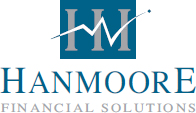Online scams are rife but there are ways to protect yourself.
Hilda, a German living in Zimbabwe whose husband apparently perished in a Spanish plane crash, wants to park $US10.5 million in your bank account so the rellies dont get their hands on it. All she needs is your full name, address, occupation, telephone numbers and martial statusoh, and a scanned copy of your passport and drivers licence.
Thomas Brown says youre entitled to $15.6 million just because you have same surname as his late client in his words, you are qualified by your surname identity. To get the money he will need your bank account details.
The people behind such schemes know the buttons to push and just how often theyre going to hit the jackpot. According to a report released last year by the Australian Bureau of Statistics, one in three people aged 15 and over encountered some form of scam in 2007 perhaps receiving emails like the ones above. Five per cent of them (806,000 people) made at least an initial response and 453,100 people lost money almost $1 billion in total.
No particular group is more likely to be conned, according to the ABS study it doesnt matter whether youre young or old, well-educated or not. Anyone can fall for a scam, the deputy chairman of the Australian Competition and Consumer Commission (ACCC), Peter Kell, says.
With that in mind, heres some tell-tale signs its scam.
Its out of the blue. The professionalism of many scams means they can be hard to pick. But Kell says one constant is the offer will have been unsolicited. If you receive an email out of the blue from your bank, the alarm bells should go of, he says.
Its to good to be true. The ACCC has been hammering this message home for years but it bears repeating: if it sounds too good to be true, it probably is whether its an investment offer, a weight-loss product or incredibly cheap, prescription-free pharmaceuticals.
You have to send money overseas. Any requirement to send money offshore is a clear warning sign, the regulators say. The best protection is to deal only with registered companies and licensed individuals, so you have access to a recognised dispute-resolution scheme.
It asks for personal details. These days, a scam wont necessarily involve a request for money, Kell says. Scams are also about identity theft . Rather than cold, hard cash, the scammer may be trying to get information that would help them assume your persona and pass an identity check.
It taps into an anxiety. Its not expertise, education or income that determines whether a scam will be successful but how anxious or vulnerable the target feels. One example is the proliferation of illegal early release of superannuation schemes. People are having their super stolen after rolling it into an unregistered fund on the promise theyll gain access to the money:
Its a secret. The transaction desires absolute confidentiality and professionalism in the handling of this matter, Thomas Brown states in his email. Well he would say that because if you spoke to someone else the first thing theyd say is the plan is ridiculous.
You feel obliged. Apart from sob stories, scammers may offer free gifts or discounts that leave you feeling obliged when they start seeking a greater commitment.
The contact details are sparse. A genuine business includes its physical address, telephone numbers and registration details on its website and in any correspondence. If theres not much more than an email address, your antennae should go up.


